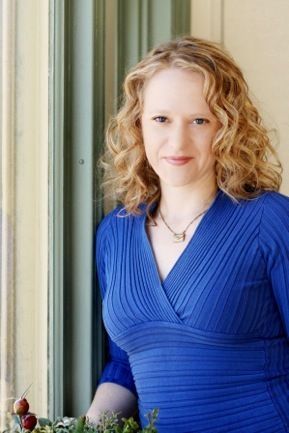how do you answer?
“Do you have children?”
It’s an innocent question, really. One people ask in order to make conversation or to begin to get to know you a little better. Ever since Seth was made in the image of Adam, we’ve been defined by our progeny, and people seek out your status in relation to them as a way of putting in place the edge pieces of a puzzle. It frames the picture.
My husband has taken to responding to that question simply. “No,” he says, and the conversation moves on.
But I have a writer’s mind and a mystic’s heart and I can’t leave the question simple and untroubled.
“That’s a complicated question,” I respond.
I’m not being cruel or rude. I’m not setting out to make my questioner—who has, with great courage and naïveté, stepped into a much larger story than who gave birth to whom—feel awkward. I’m insisting on particularity, relationship and the creativity of God. I’m insisting on the existence of a certain fellowship of women, and my membership in that group. And I’m remembering our children, wherever they are.
There are a lot of women out there like me, you see. Women for whom the question, Do you have children?, is complicated and requires quick calculations—who is asking, are they safe, can they handle something beyond the obvious, how am I holding my own story today? Although I don’t carry this grief myself, I stand beside sisters who have carried children within but never without, sisters who have held babies only to bury them, sisters who ache for children they will never hold. And I stand beside sisters who, like me, mother children they bear but didn’t birth, children who stay the weekend or the week, children who came into our lives suddenly, without the transition of birth, and became ours but not-ours.
I am a step-mother to three adopted children, and a step-grandmother to one, adorable grandson. Altogether, my (adult, mind you) children have six parents and twelve grandparents, not including the in-laws. I came into their lives when they were 16, 17 and 21. I am my husband’s second wife, and he was the second husband to his first wife. He adopted all three of her children, giving them his name and a new middle name that reflected God’s heart for them, a name that they arrived at together through prayer.
For the most part, my children, my motherhood are both invisible and qualified. I spend a lot of time and creative energy thinking about how to love my kids well, how to honor their other parents, how to be a part of their lives without being intrusive, wondering about things like if I should have started that clause with calling them “my” kids. Looking at the life that my husband and I lead, you wouldn’t necessarily know that we have children (except for the college loans.) But the space they inhabit within me is larger than anyone would imagine.
I wonder sometimes if step-parenting is like a reverse pregnancy. In place of waiting and preparation, you are suddenly, irrevocably a mother. There are no baby showers, no intrusive questions about birth plans, no physical transformation to mark this entry into parenthood. You have a child. You are a mother.
The labor pains that mark your children’s entry into you don’t build slowly. The beginning is bloody and painful, full of the screaming and thrashing that accompanies transition. And yet, because your children are coming into you and not out, there is no one there telling you to push, no one holding your hand saying, “Just one more big one!” This is a place navigable only by breathing, a silent, lonely struggle to manage the pain and accept what has already come. The work of making space within.
In time, the labor stops, sometimes with the rush of water, sometimes, surprisingly, it is only after weeks without a contraction that you notice it is gone. Holding your fullness, the gift of this new parenthood, becomes a little easier, even though you feel like you’re waddling around, carrying lives that no one else can see. You feel large, awkward, unable to get comfortable in this new life. But it’s in you, pushing around your internal organs, creating constellations of care in this negative space within that no one, not even you, can see.
It takes a lot longer than nine months, but eventually the bearing becomes less awkward, takes up less space inside. Or, perhaps the reverse is true: you have come to a place where the fullness has consumed you instead, the love and grace have expanded from within to the place where they no longer push against your ribcage but instead are your ribcage, your womb, the blood pulsing through your veins. This new life within you, this holding of these children who are both yours and not yours, has become you, and it is you who have been reborn.
The trick of invisible motherhood is that it is negative space. At the end of this reverse pregnancy, you are still yourself as far as anyone else can see. And it is easy, so easy, to become convinced by this invisibility either that you haven’t changed at all, or that you must continually act, reach out, prove you have changed, that you are, indeed, a mother. Both of those temptations grip me regularly, and just as regularly I succumb, striving to demonstrate that I love my step-children or falling into the despairing place that tells me I am not a mother, after all.
Now, trace back over these words. Instead of mother, insert the word “writer” or, if you prefer, “artist.” Let the questions of children become questions of art. Have you published? Are you famous? Are you, really, an artist?
How do you answer? How do you live?
I dance this invisibility in front of you, because I live it both ways. I am an artist. I am a mother. The gift, the pain of step-mothering is that each day I must choose to believe. Each day I must consciously embrace the life that’s made it’s way into me from the outside, and I must own that these things aren’t just roles, that I’m not less than because I don’t fit the way the world believes that mothers are made. In the same way, I must own my words—artist, mother, I must let the worlds within me fill me until I am speaking creation into being, remade in the image of God, letting word tumble upon word until all things are made true once more, the rifts made whole, the life restored.
How will you answer?
How do you live?
Do you have children?
//

Tara M. Owens, CSD is an author, speaker and spiritual director living in Colorado Springs with her husband, Bryan, and their rescue dog, Hullabaloo. She blogs on her ministry website at Anam Cara Ministries, where she comes alongside others to facilitate healing and soul care through the work of spiritual direction. She is also the Senior Editor of a spiritual formation journal founded by Larry Crabb, David Benner and Gary Moon called Conversations Journal. She has a book coming out in 2014 with InterVarsity Press. You can follow her on Twitter at @AnamCaraTO or @t_owens.



